
Every week I introduce you to some companies or individuals I think may be interesting to you. This time, I want to intoduce you to some handy calculators that will help you monitor your daily intake of nutrients.
Take the time to meet...


Day 9: It's the final day of Navratri, often the largest day of celebration. On this day in India new businesses are started, children begin their formal education if they are at the right age, and past regrets (and many times debts) are left behind. It's a new beginning, fresh start, and is celebrated as such. Today, Pure Jeevan is celebrating in a big way, too!
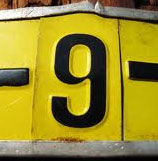 Yesterday, Jim handed in his resignation where he works. He was closing old books, imagining new ones, and today markes his first step of his new life. He gave the office one month's notice, after which he'll be here in Portland. Our new life has officially begun!
Yesterday, Jim handed in his resignation where he works. He was closing old books, imagining new ones, and today markes his first step of his new life. He gave the office one month's notice, after which he'll be here in Portland. Our new life has officially begun!

Is low fat more expensive? When I was eating a lot of nuts and seeds, in the back of my mind I kept saying, "Someday you'll eat less of these nuts and seeds, and you'll save a lot of money." I really believed that to be true because organic, raw nuts and seeds are outrageously expensive.
For one hundred days, I'm transitioning to a lower fat raw diet. I'm down to fats only in the evening, and for the next ten days those fats will only come from avocados, young coconuts, and possibly some hemp seeds. If I'm not hungry for the fat, however, I'll go without it. That hasn't been the case yet, though. By dinner time I'm ravenous and wanting to eat heavy, dense foods to calm the hungry beast in my belly. Even though I've been including some fats in the evening, I'm eating significantly less than I normally would if not doing this challenge. So, I've been eating more fruits and vegetables to get the calories I normally received from nuts and seeds.
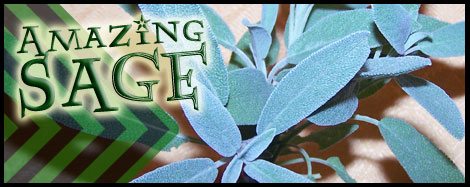
Well, we've always found the herb SAGE to be delightful in so many ways. That's why we've grown it here and elsewhere for years. Such a lovely, fragrant, sturdy, resilient herb, it's truly one of the easiest plants to communicate with -- and YES!, it truly IS a meaningful dialogue when you step out into the garden and sit among a patch of sage. All you need to do is listen carefully, and sage will speak its sage herbal wisdom to you.
I was wondering how sage came to be known as "sage" -- when all of the sources I had handy simply listed its technical name, salvia, along with its common name. Enter the great Wiki for an answer:
Read more: Please Tell Everyone: "I Read Some *Sage* Words at Pure Jeevan Today"
Correction: I said "Lenuria" a number of times in this video, but it's actually Lunaria! In any case, we wanted to share some additional description for this plant. Here's a quick paragraph from Wikipedia:
Lunaria is a genus of flowering plants in the family Brassicaceae, native to central and southern Europe. It includes two species, Perennial honesty and Annual honesty. They are widely grown as ornamental plants in gardens, and have become naturalised in many temperate areas away from their native habitat. In the language of flowers, it means Sincerity and Forgetfulness. ...The common name "Honesty" arose in the 16th century, and it may be due to the translucent seed-pods which are like flattened pea-pods and borne on the plant through winter. In South-East Asia, it is called the "Money Plant," and in the United States as "Silver dollars," because its seed pods have the appearance of silver coins.
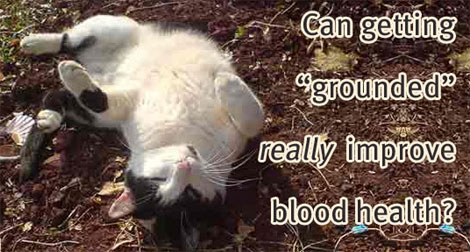
Jim here... A week or two ago, there were some videos floating around in raw food circles that seemed to indicate that one's blood health (and, by extension, one's overall health) can be quickly and dramatically improved through a practice known as grounding. I realize that, metaphorically, people commonly use the term "grounded" to indicate a kind of level-headedness -- e.g., a "down to earth" attitude. But, in the literal sense, it's an electrical term used to describe a physical connection to the earth. I'm no engineer, but my understanding is that these connections basically discharge things or people from any static electricity build-up (as in those bracelets that computer repair techs wear), or serve as a conduit through which other electricity may pass (as in lightning rods).
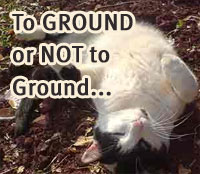 That the idea of "grounding oneself" should take root so strongly in natural health circles is unsurprising. In theory, it seems to make a lot of sense. I'm just as intrigued by it as the next person, I suppose. If we spend most of our lives wearing rubber-souled shoes, walking on shag-carpeting, sitting suspended off the ground on static-filled things like couches and office chairs, often running various electrical equipment, basking in EMFs from radio waves and Dish-network signals and cell phone radiation... sure, it makes sense that we're probably all experiencing some heretofore unprecedented (evolutionarily speaking) human body exposure to significant electrical phenomena. My car reminds me of this daily with a (friggin' annoying!) shock each time I get out and close the door. But, as the "double-rainbow guy" so succinctly put it: ?What does it mean
That the idea of "grounding oneself" should take root so strongly in natural health circles is unsurprising. In theory, it seems to make a lot of sense. I'm just as intrigued by it as the next person, I suppose. If we spend most of our lives wearing rubber-souled shoes, walking on shag-carpeting, sitting suspended off the ground on static-filled things like couches and office chairs, often running various electrical equipment, basking in EMFs from radio waves and Dish-network signals and cell phone radiation... sure, it makes sense that we're probably all experiencing some heretofore unprecedented (evolutionarily speaking) human body exposure to significant electrical phenomena. My car reminds me of this daily with a (friggin' annoying!) shock each time I get out and close the door. But, as the "double-rainbow guy" so succinctly put it: ?What does it mean

This is the first installment of a new series that we plan to run occasionally here on the Pure Jeevan blog. The series is called "Raw Foods 101" (the same name as our free eBook that has now been read by more than 5,000 people around the world!). Raw Foods 101 will become the latest addition to our category list (available along the right side of our sidebar). In time, clicking on Raw Foods 101 will deliver a plethora of raw food tidbits.
So, where should we start? ... How about the topic of soaking nuts and seeds ! This is a question that comes up repeatedly in emails sent to Pure Jeevan.
Read more: Raw Foods 101: Why Should You Soak Nuts Before Eating Them?

Jim here... When you consider the agricultural and marketplace practices that affect the food we eat (e.g., pesticide use in the fields, widespread irradiation afterward, and the contamination of produce from various sources -- not to mention some of the disturbing potentialities we face in terms of further governmental intervention into the food chain), it leads one to the conclusion that, if we really want to eat the best food ever, growing it yourself is a great solution. It's also cheaper to grow your own and, in my opinion, more fulfilling than purchasing it (if you have the time and space to manage it, that is).
With all of these concerns (and more) in mind, we've launched a new series of interviews called "Know the Growers" in which I'll be interviewing organic farmers around the world on best practices in the field. Initially, we'll be publishing them every few weeks, most likely. Once we sell our home and are "full-time Pure Jeevan karma yogis," we'll be publishing them weekly (along with resuming our daily video series Know Your Food). I'll be publishing these organic farming interview transcripts on NaturalNews.com under their Citizen Journalist program.
Read more: Pure Jeevan Launches Natural News Interview Series Focusing on Organic Farming

For today's Makin' It Monday, we're not really making something, but rather sprouting something! We tend to go through periods of time when we are sprouting a lot, consuming sprouts on salads, sandwiches, and inside whatever dishes we can add them to at the time. It seems appropriate for this time of year to start sprouting, again.

Have you ever sprouted seeds? The first time I ever sprouted, I used a nut milk bag that I kept dangling over the kitchen sink. I put some seeds into it, let them soak overnight in a bowl of water, and then rinsed them in the morning. Every time I was in the kitchen, I rinsed them again and let them drip into the sink until the next rinsing. It's important to keep the seeds moist and rinsed. It was thrilling to see the tiny little sprouts when they first began emerging from the seeds!
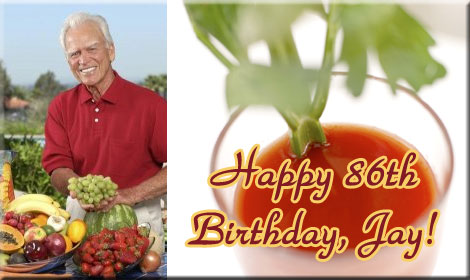
Wow, today is a really special day: Jay Kordich's 86th birthday! There must be millions of stories of how Jay has touched the lives of people in enormously positive ways. Here's ours...
Back in the early 1990s when we moved to the Washington, D.C., area, Wendi got a job in Arlington, Virginia. When she walked into work one day, one of the other workers there was absolutely glowing. So, she asked the woman, "Do you have a new boyfriend or something ?!!"
Wow, is it really Episode 3 already? How time flies! Remember way back when we started this informative, informational, nutrition-oriented "Know Your Food" series? Seems like ages ago, doesn't it? (Oh, wait... It WAS ages ago. It's just taken us a while to get up to speed with this video stuff!) Anyway, here's the video, followed by some camera/video editing news -- oh, and of course some highly urgent celery information. (Okay, it isn't really urgent at all; we just needed to add a dash of drama.) So, see what you think. You might even learn a thing or two about our stalky green friend.
Not TOO bad, right? We're getting to our goal of roughly 3-minute episodes. Of course, this is still one of our first attempts, shot last Sunday. We thought it was decent enough to not entitle it "salvaged" as we did the previous installment.
